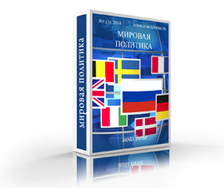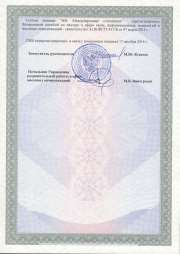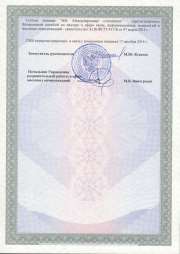MAIN PAGE
> Journal "World Politics"
> Contents of Issue № 02/2020
Contents of Issue № 02/2020
|
Questions of current interest |
|
Erokhov I. - Post-globalization and political archaization in Russia
|
|
pp. 1-25
|
DOI: 10.25136/2409-8671.2020.2.33335
Abstract: The purpose of the article is political and philosophical insight into the problem of global disintegration - the main characteristic of the modern stage of international relations, which the author of the work suggests naming a “post-globalization”. The author substantiates the hypothesis about the completion of globalization and the beginning of a post-global period in international relations. The article also reveals the thesis about archaization of politics in modern Russia as a reaction to the beginning of post-globalization. The work contains a methodology paragraph which enunciates the concept of two typical forms of reaction to postglobal changes in international relations. This theory serves as a methodological basis for the applied analysis and the conclusion that archaization of politics has converted Russia from a global power to a regional country. In a wide historical sense, archaization of Russia’s politics proves that the post-Soviet period has been completed in post-Soviet states. Globalization, which is understood as a global integration process, has been completed. In global politics and economics, a centrifugal ideology of disintegration and separation, manifested in a dramatic self-isolation of countries and the beginning of a new “enclosure” of national socio-economic systems, has replaced the strategies of unification. Russia has responded to the current international situation with archaization of both external and internal policies. This path is strategically wrong, and speaks for a degradation of the country’s politics. Improper political reaction to post-globalization has already driven Russia out from the top-list of the countries of influence to the regionally significant countries whose influence is more prominent within their region. The research subjects the author takes as a basis - post-globalization and archaization of Russia’s politics - haven’t been studied sufficiently enough in Russian world literature. At the same time, these problems seem to be urgent, since the author comes to the conclusion that Russia is not ready for the post-global epoch.

|
Theory and methodology of international relations |
Ravochkin N.N., Bobrikov V.N. - Contextual dependence of the effectiveness of political and legal institutions functioning and the implementation of social transformations
|
|
pp. 26-40
|
DOI: 10.25136/2409-8671.2020.2.33434
Abstract: The authors consider the issues of modern political and legal institutions functioning. The research subject is the processes of renewal and formation of political and legal institutions in their connection with social context (sociosphere). Special attention is given to three political and legal institutions of modern globalizing society - political parties, mass media and social organizations, associations and movements. The authors describe the stages of societies’ evolution and note the basic set of criteria and parameters which allow classifying countries according to the stage of their development. The authors consider the transformations happening to the above mentioned institutions in Western Europe and the U.S., i.e. the global core countries. The scientific novelty of the research consists in the revelation of contextual linkage when defining the effectiveness of functioning and vectors of transformation of political and legal institutions and their practices. The authors prove that the considered institutions are being transformed in accordance with the transformations in the authorities which more often use humanist ideas and permission methods instead of direct coercion. The authors note a complex impact of globalization and digitalization on the institutions of parties, mass media and social associations. The need for their analysis is determined by the rapid growth of their role in public life.

Zhao J., Kho D. - China’s assistance to African countries in the field of telecommunication: interaction and the role of FOCAC
|
|
pp. 41-58
|
DOI: 10.25136/2409-8671.2020.2.31753
Abstract: The research object is the role of China’s assistance in the implementation of Information and Communication Technologies projects in the context of international assistance of China to Africa, and the role of the Forum on China-Africa cooperation (FOCAC) in this process. The research subject is the set of measures used by China to provide such assistance including that within FOCAC. The author studies such aspects of the topic as the importance of Chinese transnational corporations operating in the field of communication technologies, the role of FOCAC as a platform helping realize effective cooperation between China and Africa in the field of telecommunication, and the reaction of Western countries to such actions of Beijing. To solve the research tasks the author uses the following methods: structural-logical, the system approach, historical and economical and statistical analysis. The author arrives at the following conclusions: 1) the Information and Communication Technologies field is one of the most promising market sectors for China in Africa, as its corporations have a range of advantages compared with their Western competitors; 2) in consideration of close connection between Chinese companies and the government, it is obvious that through this interaction, Beijing successfully extends the pool of its political partners; 3) FOCAC plays a special role as it is the only mechanism allowing China to realize its African vector of external policy bilaterally and multilaterally. The scientific novelty of the research consists in the fact that the author analyzes the topic which hasn’t been studied sufficiently enough in Russian and foreign historiography; the author analyzes new sources and attempts to define the role of FOCAC particularly in cooperation in the field of telecommunication.

|
Concepts of political structure of the world |
|
Osipov E.A. - Three years of E. Macron’s presidency: French multiculturalism at secondary school
|
|
pp. 59-67
|
DOI: 10.25136/2409-8671.2020.2.33129
Abstract: The author considers France’s politics in the field of integration of child migrants into the system of secondary school education during the first three years of E. Macron’s presidency (2017 - 2020). The author gives special attention to the measures against the proliferation of religious radicalism among young people. The author proves that, unlike his predecessors whose steps were limited to merely counter-terrorist measures, Macron focuses on the individual approach to each detected radicalism case or behavior and on taking particular steps aimed at the prevention, monitoring and combating such cases. Generally speaking, Macron pursues the mainstream right policy on the issues of integration of representatives of religious and national minorities into the school education system. The steps taken by him, such as compulsory kindergarten attendance since the age of three, the reduction of the number of pupils at elementary school rooms, and the closing of the ELCO program, should lead to the improvement of the situation and can promote the Republic return to the lost territories in the suburbs of large cities. At the same time, the President of France avoids radical measures (e.g. the Arab language remains one of foreign languages studied at school) which could “stigmatize” the Musliim community of France.

|
Modern foreign policy concepts and doctrine |
|
Ziatdinov D.F. - Human safety concept genesis
|
|
pp. 68-85
|
DOI: 10.25136/2409-8671.2020.2.33537
Abstract: The human safety concept has become an integral part of international relations against the background of the security agenda extension. The research goal of this article is the definition of the main stages of human safety concept formation. The research subject is the human safety concept. The article contains the review of the evolution of the human safety concept and the definitions of human safety. The author considers the implementation of the human safety concept in official documents of national and international level. The research is based on general scientific methods: historical and comparative analysis, the systems approach and the critical method, as well as formal analysis of legal and statutory documents. The modern human safety discourse outlines the following problems: the definitions of a safety referent, the personal safety theory, the basic stages of the concept formation, the experience of countries and international organizations (Canada, Japan, Thailand, etc.). A universally recognized definition of personal safety hasn’t been formulated yet, despite the fact that the UNO promoted the development of a universal understanding of human safety. That led to its loose interpretation and begot the problem of legitimacy of external interference and hampered practical activity in this field. The author concludes that the human safety concept should be comprehensively analyzed, particularly with regard to its development, the structure of human safety, differentiation of human safety from and interaction with other types of safety. The author also finds out that the problem of defining the limits of the human safety concept still exists due to the absence of a unified interpretation. The formation of the concept itself is ongoing. The scientific novelty of the research consists in a comprehensive analysis of the evolution of the human safety concept in international relations which reflects the main stages of formation of this concept and its directions, and in an attempt to define human safety.

|
Colonial policies of world powers |
|
Emelianenko E.G. - Postcolonial Africa: problems and prospects
|
|
pp. 86-101
|
DOI: 10.25136/2409-8671.2020.2.33344
Abstract: The article considers the problems of transition of African states to the south of Sahara from the position of the “hopeless continent” to the economic rise and raises the questions of conformity with these changes. The author gives special attention to the consequences of decolonization, the functioning of modern political institutions, the actions of the elite, the migration issues, labor discrimination of African migrants in Europe, and the aftereffect of economic presence of China in African countries. The author draws attention to the fact that the so-called raise had already been experienced by the Africal continent. Since the acquisition of independence, many texts have been published including scientific articles, describing Africa “on the rise”. However, in unfavorable conditions resulting from the policies of colonial powers, African states can’t overcome the lingering crisis due to internal reasons. Political elites are pursuing their policies for the convenience of former colonial powers rather than of their own state. The author’s personal attendance at the economic forum within the Russia-Africa summit helped collect unique materials and expert opinions of political and public leaders of African States about topical problems. The author analyzes the consequences of decolonization and the activities of modern “partners” and concludes that, in a time of resource shortage experienced by many countries, African states to the South of Sahara will face even more serious economic, ecological and social problems. Based on its past, Africa should find its own development path and protect its own interests and values. During the development of state and national strategies, a special role should be given to the issues of education, as it is the basis for the formation of human values and worldview for the future.

|
Ursul A.D. - Latin American vector of global sustainability acquisition
|
|
pp. 102-115
|
DOI: 10.25136/2409-8671.2020.2.33376
Abstract: The research subject is the study of global tendencies of Latin America transition to sustainable development. Such transition is aimed at settling the argument between the rising needs of humanity and the inability of the biosphere to satisfy them without being rapidly and massively destroyed. The sustainable development strategy is supported by the states of Latin American region where the understanding is strengthening that its effective usage is impossible merely at the national level and requires regional, interregional and global approaches. The author’s aim is to analyze the global “background” and international and regional dimension processes of Latin America acquisition of global sustainability. The author outlines basic directions and the first steps of Latin America states transition to sustainable development, and emphasizes the leading role of Brazil in this process. All the more so as the country is strengthening its ability to influence the pursuing of sustainable development goals via BRICS. Since its foundation, this international association of five large countries has oriented towards the effective transition to sustainable development in its unique format. The strengthening of cooperation between these countries is expected, including that in BRICS Plus format, in “sustainable transition”, which is also proved by the participation in this process of the recently created BRICS departments - the New Development Bank and the Network University. The author assesses the influence of COVID pandemic on the further socio-economic development of the region and on the process of implementation of sustainable development goals.

|





